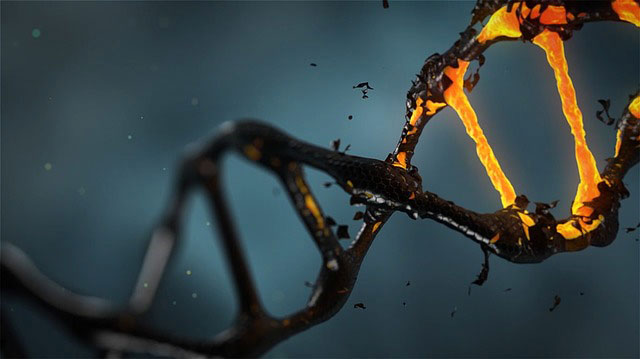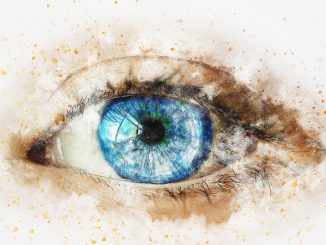
The world gets alarmed whenever there’s news of a deadly virus outbreak.
There’s Ebola, which occurrence in West Africa three years ago was the deadliest since its discovery in Zaire and Sudan in 1976.
There’s MERS-CoV, or Middle East respiratory syndrome coronavirus, which, in spite of efforts to contain the epidemic in 2012, has spread from Saudi Arabia to other countries including the United States of America.
Dengue, a mosquito-borne disease, that infects 390 million people every year based on a World Health Organization report.
Another mosquito-borne disease, Zika, which since its major outbreak in 2007 has now spread to more than 70 countries and territories including South and Central America, Mexico, and the Caribbean. At first, the disease appeared to have milder symptoms than dengue until it was found out that the virus could cause microcephaly. It’s also being linked to Guillain-Barré syndrome, a rare disorder in which a person’s immune system attacks his or her nerves leading to paralysis.
And, even up to now, our world has not discovered a cure for HIV/AIDS which has already killed more than 35 million people including children.
Mankind seems to remain at the mercy of viruses and diseases in spite of the progress we’ve made in medical science.
But then, even if disease is pervasive, man has also remained persistent.
We’ve already come as far as genome engineering in our pursuit to create a healthier world. Now, through CRISPR, or Clustered Regularly Interspaced Short Palindromic Repeats, mankind might be able to eliminate deadly viruses and cure genetically-inherited diseases.
CRISPR genome editing technology has been inspired by nature itself — the capability of the immune system to kill viruses. The bacteria in the immune system contain “clusters of repeating sequences” in their DNA. When a virus attacks, these bacteria target that virus and cleave its DNA which they will then store in their CRISPR array. With this genetic memory of the enemy, the immune system becomes more effective in fighting off succeeding attacks from the same virus strain.
The “cleaving” that these bacteria do to viruses is so precise that scientists who had discovered the CRISPR system endeavored to imitate the process. Now, there are two very promising genome editing tools which can help cure cancer and other diseases: CRISPR-Cas9 and CRISPR-Cpf1.
CRISPR-Cas9 uses an enzyme called Cas9 to act as molecular scissors, which cuts off two DNA strands at precise spots in the genome. Having cut the strands, it provides an opportunity for parts of DNA to be removed or added. Meanwhile, CRISPR-Cpf1, may soon provide for an even more accurate genome engineering.
How will CRISPR impact our world?
1. Eliminate HIV/AIDS and other deadly viruses. Viruses spread their harm by replication once they are inside the body of a host. By cutting out the DNA’s ability to reproduce, the virus loses its potency. So far, the feasibility and efficiency of excision of HIV-1 provirus has been proven in an experiment with mice. The study was conducted by the team of Chaoran Yin which was published in the Molecular Therapy, May 2017.
2. Eliminating mosquitos and other pests that carry deadly viruses such as Dengue and Zika. It may be possible, as well, to eliminate those insects that have been plaguing humanity. Through CRISPR, their reproduction can be controlled until the harmful species are wiped out.
3. Come up with more effective medicines. Medicines based on CRISPR can help to target diseased cells and modify them in order to regain health. Bayer and other pharmaceutical companies have already started to invest in this kind of undertaking. With this genome editing technology, a new world of possibilities for more effective and faster treatments has been opened.
4. Healthier foods. Agriculture can benefit a lot from CRISPR since the vulnerabilities of plants to pests and diseases can now be cut out from their genetic codes. It’s a more efficient solution than mere organic farming, where yields are still prone to natural pestilence. With CRISPR, plants’ resistance are built up and this makes them healthier for consumption.
5. Cure cancer. CRISPR can provide a way to control the growth of cancer by snipping away the mutated gene. A cancer patient will no longer have to undergo chemotherapy, which actually does more harm to the body and provides no real guarantee. CRISPR may even cause the cancer cells to die and for a person to become completely cured. Clinical trials on three different types of cancer may soon be approved by the Food and Drug Administration.
6. Cure blindness. Blindness caused by mutated genes can also be treated. In a study conducted with mice which was led by Professor Juan Carlos Izpisua Belmonte, they found out that CRISPR could also be effectively used in non-dividing cells — not only embryos. According to Professor Belmonte, this discovery means that CRISPR can also be applied on other organs. By cutting off the faulty genes and substituting them with healthy replacements, their team was able to improve the sight of the blind adult rats.
7. Cure genetic diseases before birth. Another study has shown that CRISPR can help in eliminating genetic heart mutation in human embryos. Shoukhrat Mitalipov and his associates from Oregon Health and Science University have proven that this genome editing technology can provide hope to unborn babies which are at risk of death or leading abnormal lives due to inherited disease. There were no incidents of off-target mutations which made the group even more optimistic that the technology could help in curing other genetic disorders. CRISPR may actually be the solution the world has long been waiting for.




Leave a Reply